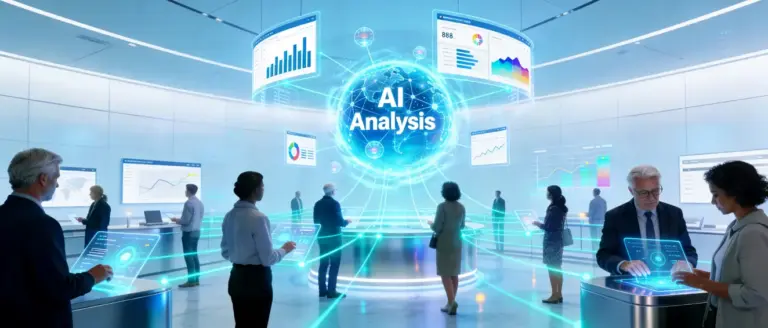In today’s dynamic business environment, providing exceptional customer experiences has become a top priority. With customers’ expectations continually on the rise, companies are actively seeking innovative solutions to not only streamline but also enrich their customer interactions. Among these solutions, Customer Communications Management (CCM) software is gaining prominence.
While CCM traditionally focused on managing customer communications, it is now poised to play a central role in the future of Customer Experience Automation (CXA). This evolution promises to reshape how businesses engage with their customers, making CCM a pivotal tool in delivering outstanding experiences in an increasingly competitive marketplace.
Customer Experience Automation Imperatives
CX (Customer Experience) automation imperatives refer to the essential principles and strategies that businesses must embrace in order to succeed in the rapidly evolving landscape of customer experience. These imperatives revolve around harnessing technology and automation to enhance every aspect of the customer journey.
Key elements include personalization, where businesses tailor interactions to individual customer preferences and needs, and omnichannel engagement, which ensures a consistent experience across all touchpoints. Automation of routine tasks and processes is critical for efficiency and error reduction. Real-time data analysis is imperative for making informed decisions and adjustments.
Additionally, proactive customer support and continuous improvement based on customer feedback are crucial. Adhering to these CX automation imperatives enables businesses to not only meet but exceed customer expectations, fostering loyalty and competitiveness in the market.
In this blog, we’ll dive into the profound impact of CCM in…
- Accounts Payable (AP) Automation
- Document Automation
- Customer Communications Management (CCM)
1. Accounts Payable Automation
Accounts payable (AP) processes, which involve the receipt and management of invoices, can often be a labor-intensive and error-prone task for many organizations. The manual handling of invoices, data entry, and approval workflows can lead to inefficiencies and the risk of human errors, potentially resulting in delayed payments or financial discrepancies.
This is where Customer Communications Management (CCM) steps in as a pivotal solution. CCM software automates various aspects of the AP process, significantly improving its efficiency and accuracy.
By automating data extraction, validation, and the approval cycle, CCM minimizes the need for manual intervention, reducing the likelihood of errors and expediting the payment process.
Moreover, CCM also facilitates the automated generation and delivery of payment reminders to vendors, ensuring timely communication while maintaining a professional and consistent tone. The result is not only a more streamlined and error-free AP process but also enhanced relationships with vendors and improved financial control for organizations.
- Invoice Processing: CCM software streamlines the processing of invoices by automating data extraction and validation. This reduces manual data entry, minimizes errors, and accelerates the approval and payment cycle.
- Payment Reminders: CCM can automate the generation and delivery of payment reminders to vendors. It ensures timely communication while maintaining a professional and consistent tone.
- Reporting and Analytics: CCM software provides customer insights into AP performance, allowing organizations to identify bottlenecks and optimize the process continually.
- Compliance: CCM ensures that all communications related to AP adhere to legal and regulatory standards. This mitigates the risk of non-compliance and associated penalties.
2. Document Automation:
Efficient document automation is a critical component of modern business operations, as it serves to alleviate the burdens of manual effort, enhance accuracy, and accelerate workflow processes. In this context, Customer Communications Management software emerges as a valuable asset. CCM software streamlines document creation and distribution by centralizing template management, ensuring that the right data is integrated from various sources, and automating workflow tasks.
This not only reduces the potential for human errors but also significantly expedites the document generation process. Additionally, CCM offers version control and user access management features, ensuring that organizations maintain control over document quality and security.
CCM’s document automation capabilities are instrumental in improving operational efficiency and the overall quality of business communications, making it a vital tool for modern organizations seeking to remain competitive and effective in today’s fast-paced business environment.
- Template Management: CCM software allows for the creation and management of document templates, which can be customized for various purposes, such as contracts, agreements, and reports.
- Data Integration: CCM integrates with databases and data sources, ensuring that documents are populated with accurate and up-to-date information.
- Workflow Automation: Organizations can use CCM to automate document generation and distribution processes. This minimizes manual intervention, streamlining operations.
- Version Control: CCM provides version control features, ensuring that the correct and current versions of documents are used.
- User Access Control: Role-based access control in CCM ensures that only authorized personnel can create, edit, or approve documents.
3. Customer Communications Management:
Beyond accounts payable (AP) and document automation, Customer Communications Management (CCM) software truly shines in the realm of enhancing customer communications, ushering in a new era of seamless and personalized experiences for organizations and their clientele.
The power of CCM in this context lies in its ability to craft interactions that resonate on a personal level and create a consistent and cohesive customer journey. It achieves this through a variety of mechanisms, including data integration, multi-channel output, and the automation of routine communication tasks.By seamlessly integrating with customer data, CCM allows organizations to generate communications that are individually tailored, from personalized emails to well-crafted marketing messages.
What truly sets CCM apart is its support for omni-channel communication, ensuring that messages are delivered consistently across various platforms, whether it’s email, SMS, social media, print, or the web. Moreover, by automating repetitive communication tasks, CCM not only reduces the risk of errors but also enhances operational efficiency, enabling organizations to engage with their customers more effectively.
Finally, CCM software’s robust analytics and reporting features provide organizations with valuable insights into the effectiveness of their customer communications, facilitating data-driven improvements and ensuring that the customer experience remains at the forefront of their business strategy. In this way, CCM emerges as a linchpin for organizations committed to providing personalized, seamless, and exceptional customer experiences.
- Personalization: CCM software enables the creation of personalized communications. By integrating with customer data, it tailors messages to individual preferences and profiles, increasing engagement.
- Omni-Channel Output: CCM supports multi-channel communication, allowing organizations to deliver consistent messages through email, SMS, social media, print, and web.
- Automation of Routine Tasks: CCM automates routine customer communication tasks, reducing manual errors and enhancing operational efficiency.
- Analytics and Reporting: Organizations can use CCM to gain insights into the effectiveness of customer communications, allowing for data-driven improvements.
Transform Your Business Through Customer Experience Automation
In conclusion, Customer Experience Automation (CEA) stands as a transformative force, offering organizations the means to optimize multiple facets of their operations. It allows businesses to streamline and enhance accounts payable processes, reducing the burden of manual data entry and minimizing errors while expediting payment cycles and improving vendor relationships.
Simultaneously, it facilitates the automation of document generation, providing efficiency, accuracy, and version control in creating various documents, from contracts to reports. Most significantly, CEA empowers organizations to consistently and personally engage with their customers across multiple communication channels, leaving a lasting impression.
As the business landscape becomes increasingly competitive, the future of customer experience automation is undeniably intertwined with the capabilities of Customer Communications Management (CCM). CCM software plays a pivotal role in orchestrating personalized, omni-channel communication strategies that drive customer engagement and loyalty. It enables businesses to harness the power of data integration and automation, providing a unified and tailored experience for each customer.
For companies aspiring to thrive in this dynamic marketplace, embracing CCM today is not merely a technological choice but a strategic imperative. By doing so, organizations position themselves to deliver exceptional customer experiences that will not only meet but exceed the evolving expectations of customers.
The synergy of CCM within the realm of Customer Experience Automation is a key tool for future success, fostering stronger customer relationships, operational efficiency, and a competitive edge in the business world. It’s a forward-looking investment that paves the way for a future where personalized and efficient customer experiences become the standard, ultimately driving growth and prosperity.





























 Banking
Banking
 Insurance
Insurance
 Credit Unions
Credit Unions








 Professional Services
Professional Services
 Consulting & Advisory
Consulting & Advisory
 Legacy Migration
Legacy Migration


 Insights
Insights
 Whitepapers
Whitepapers
 FAQs
FAQs
 Brochures
Brochures
 E-Books
E-Books
 Glossary
Glossary 
 Case Studies
Case Studies
 Events & News
Events & News
 About Us
About Us
 Information Security
Information Security
 FCI Cares
FCI Cares
 Leadership
Leadership
 Careers
Careers
 Partner Program
Partner Program
 Current Openings
Current Openings



